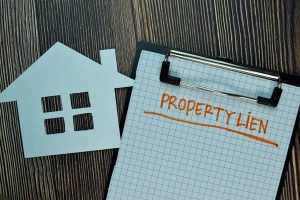

 Buyers Resource Center
Buyers Resource Center
Home inspection helps you identify key problems in your new property and saves you time and money. Simply put, the process aims to examine the property for existing and potential flaws.
It not only lets you know the structural condition of the property but also helps you negotiate with the seller to fix them or lower the purchase price.
Therefore, a home inspection is one of the most important steps for home buying and should be taken seriously.
Unfortunately, many buyers commit mistakes during the inspection process, leading to complications and expensive repairs in the long run.
Here we have outlined such mistakes you should avoid to get the “real picture” of your potential home and give yourself confidence and peace of mind in your new investment.
MISTAKE#1—Not Getting a New Property Inspected:
Most homebuyers consider home inspection for old houses only. They believe that new houses are too perfect to be inspected.
Keep in mind that a home inspection is an important step, no matter how new or old the home is.
Don’t just assume that because a property has been approved, it must be in good condition or is problem-free.
Don’t blindly trust that the builder did everything right just because they have a great reputation.
New homes are likely to be plagued by ventilation issues, façade leaks, firewall flaws, stucco issues, drainage issues, and window leaks.
Therefore, make sure to get your home inspected rather than putting faith in builders.
MISTAKE#2—Not Hiring the Right Inspector:
A home inspector inspects the property for existing and potential defects.
Based on their approval, you have peace of mind that you’ve chosen the right property.
But not all inspectors are the same. Some of them are inexperienced, uncertified, and shady as well. And you don’t want to end up with such inspectors. Therefore, do a little research before hiring a home inspector.
Ask around for a recommendation from your friends or family, as well as your real estate agent.
Afterward, shortlist at least 3 or 4 inspectors so you can compare prices, levels of experience, and service as well. Learn about their experience, background, and the number of inspections they have done. Make sure to verify their certifications, insurance, and credentials.
MISTAKE#3—Not Attending the Inspection:
Make sure to get the inspection done in your presence.
Otherwise, you are likely to miss out on an opportunity to get valuable information about your new property. Although you will get the inspection report, you won’t be able to understand things unless you see the inspection yourself.
Attending the inspection lets you find out where everything is located and determine the budget required to fix the issues. You can ask questions while doing rounds with the inspector to know more about the property.
But that doesn’t mean you should be overly involved in the inspection. If you continuously poke the inspector or spend too much chatting him up, you may distract him from the task at hand and he can miss important details.
MISTAKE#4—Not Following the Inspector’s Report:
Most homeowners are likely to skimp on the repairs suggested in the inspection report. These reports often record the existing and potential problems in your new home as well as the cost to fix them.
Getting these repairs done might eat up a huge part of your budget. But if you don’t get them fixed on time, you may end up with a big problem down the road.
MISTAKE#5—Not Asking the Questions:
Some home buyers hesitate to ask questions when the report includes something they don’t understand. Maybe they don’t want to look silly or dumb, feeling discouraged to ask questions.
This way, they end up being uninformed about major concerns that could impact their home purchase.
Keep in mind that even experienced homebuyers ask the questions. After all, the inspector is hired for their professional expertise.
MISTAKE#6—Expecting a Perfect Report:
Some buyers are not likely to do well with a detailed inspection report. Every home has flaws. An average inspection reports include 50 to 100 “shortcomings” in any house. In fact, the checklist of home inspectors includes some 1600 items.
MISTAKE#7—Not Performing the Research Yourself:
Relying on a home inspector is a good decision. But that doesn’t mean you follow them blindly.
You should also do the research yourself.
For example, you can check the kitchen to determine if it is of adequate size. The bathroom can be checked for the fixtures and other accessories you use in your daily life. While the inspector will do the professional work for your home, you can check the basic requirements yourself.
MISTAKE#8—Not Going for Additional Testing:
Sometimes, your inspector will recommend you hire a specialist for a potential issue.
For example, they may recommend testing for mold or consulting with a roofing pro. Some buyers may ignore the recommendation just to save money or close the deal as soon as possible.
Such a mistake can cost you sooner or later.
Investing in additional inspection will offer you peace of mind and save you a fortune in expensive repairs in the long run.
MISTAKE#9—Ignoring the Exterior Problems:
Some home inspectors just assess the interiors of the property and may skip the exteriors, for example, underground pipes, rooftops, etc.
This can lead the buyers to big expenditures and regret in the future. The exterior problems may not be caused by the age of the property but rather due to flaws in design or inferior materials.
From plumbing to water leakage, the list of exterior problems can be endless. But you should take note of them.
Bottom Line: Home is one of the biggest investments you make in life. Getting the home inspection done rightly helps you identify defects as well as save time and money. Besides choosing the right inspector, it is important to get your doubts cleared and stay alert throughout the process.





Blog articles are purely for educational purposes and provides generalized information of the topic(s) covered. These articles should not be considered as legal advice.
